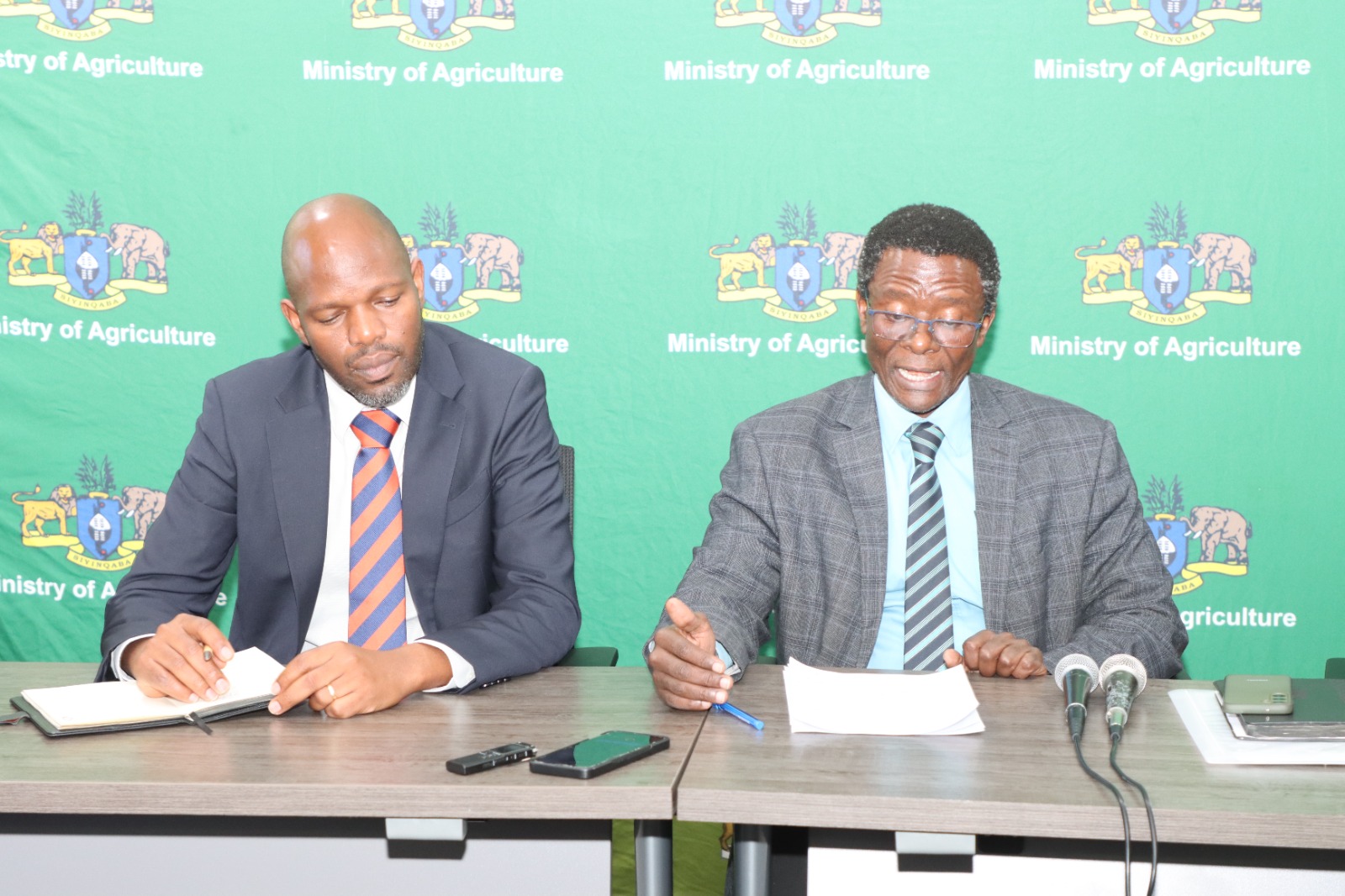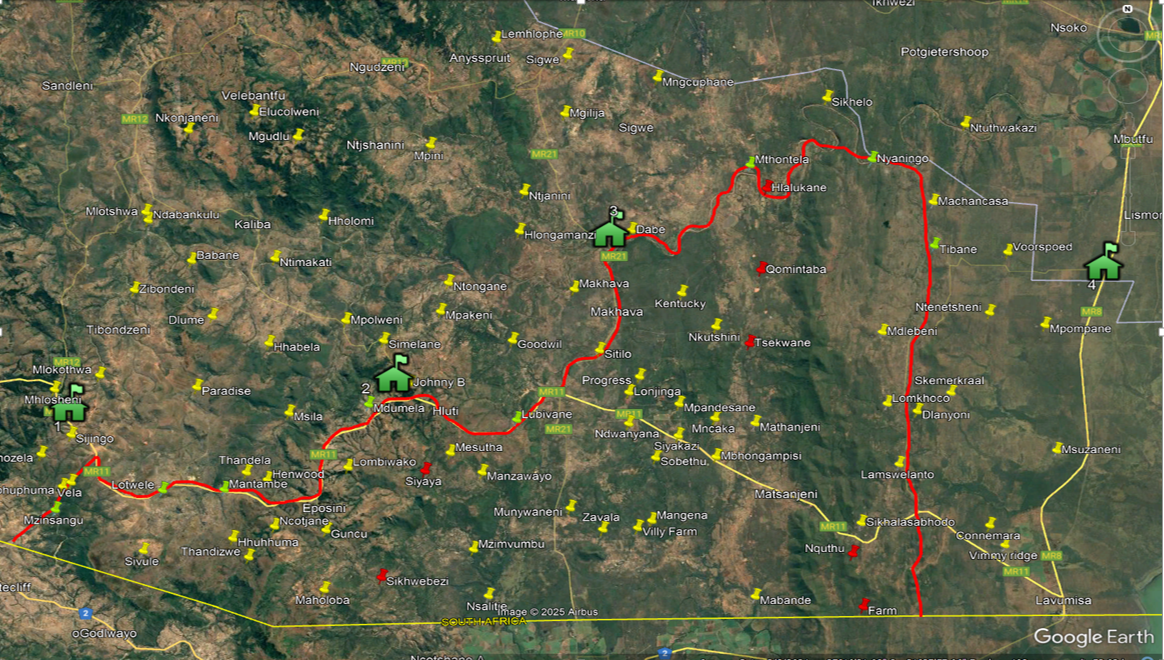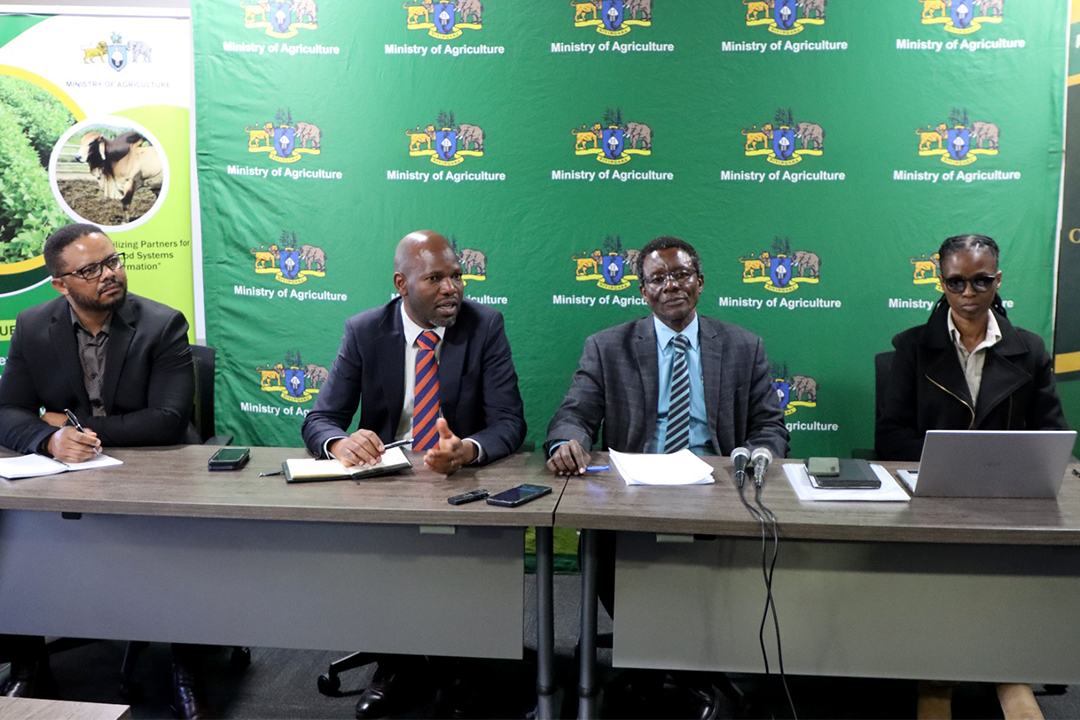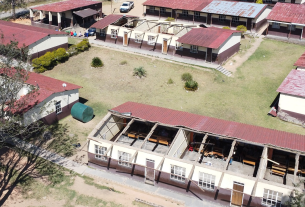By Mbono Mdluli
MBABANE – The Eswatini government, through the Ministry of Agriculture and the National Disaster Management Agency (NDMA), has announced plans to implement mass vaccination against Foot-and-Mouth Disease (FMD).
This initiative comes in response to an outbreak that was officially detected in the Shiselweni region approximately two weeks ago. The outbreak has been confirmed in multiple locations, with 13 dip tanks identified as having infected cattle and three additional tanks under investigation.

Key Officials and Announcements
During a press conference held on June 12, 2025, at the NDMA Conference Room in Mbabane, several key officials presented the government’s response plan:
Dr. Xolani Dlamini (Director of Livestock and Veterinary Services)
Sydney Simelane (Ministry of Agriculture Principal Secretary)
Victor Mahlalela (NDMA Chief Executive Officer)
Containment Measures
The government has outlined a comprehensive approach to contain and eliminate the disease:
- Vaccination Program:
Scheduled to commence on June 19, 2025
Vaccines will be imported from Botswana, with arrival expected on June 18, 2025
Botswana’s Vaccine Institute (BVI) is a leading producer of FMD vaccines in Southern Africa
- Movement Control:
Strict restrictions on cattle movement from affected areas (red zone)
Prevention of cross-border movement, particularly with South Africa
Limited human movement in affected areas to prevent disease spread

- Isolation and Prevention:
Separation of infected and uninfected cattle
Controlled grazing to prevent transmission through grass
Implementation of biosecurity measures
- Culling Protocol:
Used as a last resort
Mandatory culling of all cattle (infected and uninfected) if infected animals are moved to uninfected areas. This can also apply to any material suspected to have the FMD infection.
Example: If one infected cow is moved among 14 healthy cattle, all 15 must be culled

Financial Commitment
Total budget allocated: E40 million through NDMA
Current disbursement: E25 million
These funds will support various containment and control measures
Timeline and Expectations
The containment measures are expected to take 12-24 months
Success depends on cooperation between government and citizens
Regular monitoring and surveillance will be conducted to track progress
Economic Impact
The outbreak has significant economic implications for Eswatini:
Suspended exports to various countries including the UK, Norway, Taiwan, and EU countries
Impact on meat producers, smallholder farmers, and agri-retailers
Potential long-term effects on the livestock sector and national economy
Regional Context
This outbreak is part of a broader regional challenge:
Neighbouring South Africa has been dealing with persistent FMD outbreaks since 2021
The situation requires careful management of cross-border movements and coordination with neighbouring countries
The procurement of vaccines from Botswana demonstrates regional cooperation in disease control
The success of these measures will depend on strict adherence to protocols and cooperation from all stakeholders, including livestock farmers and the general public.
(Pics by: NDMA)




